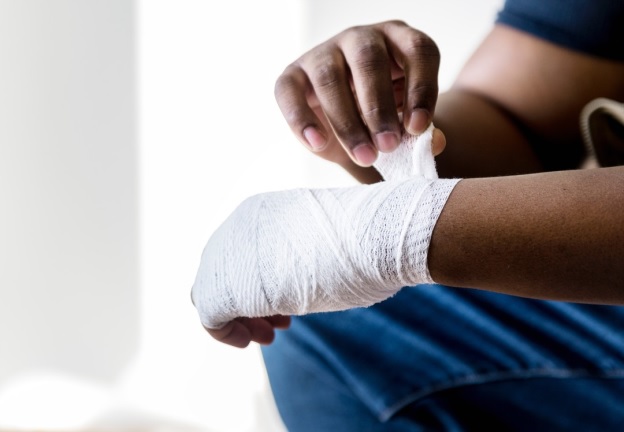As someone ages, their bodies weaken and it becomes more likely that they will fall and injure themselves. We all stumble occasionally, but for an elderly person, this can be serious. Whether they are in a nursing home or still living at home there are steps they can take to try and prevent this from happening.
In the US fall prevention alarms in nursing homes are being phased out. These alarms are important for elderly residents to be able to call for assistance if they need a drink, the bathroom or if they have an unexpected fall. Without them, they may end up feeling trapped and it can result in more falls if they try to do things themselves. When choosing a nursing home, you should make sure that they are still using an alarm system.
Exercise
Daily exercise has lots of benefits for elderly people. It will keep their bodies stronger and prevent falls. There are many exercises which can be done from their seats or someone should walk with them to make sure they are safe.
Exercise will also keep them feeling better in themselves and give them more independence. One fantastic new trend for people who are still able is aqua sports, as the water takes on any weight whilst eliminating strain – it allows people to do exercises that otherwise wouldn’t be possible. You may be able to find classes at your local gym, or you can find some ideas for exercise for elderly people here.
Home adjustments
If they are still living at home, then some adjustments should be made to their home. One idea could be to have everything on one level so that they don’t have to go upstairs. Handrails are also a fantastic option and can be installed in several places. Being able to sit down quickly could also prevent falling. A seat should be accessible in the shower and even in the kitchen.
Keeping the house tidy and free from clutter is also important as well as any trip hazards, such as removing any rugs. Grip flooring could also be installed such as carpet. Bathrooms and kitchens can be dangerous when wet so high-quality non-slip mats could be a great idea.
It may also be difficult for people to bend down low or reach high so some cupboards should be emptied, and the contents moved so everything is accessible.

Mobility aid
Some kind of mobility aid could make all the difference. A walking stick or walker, for example, they should discuss this with their doctor. This will keep them walking for longer.
Wheelchairs or mobility scooters are great if it means retaining independence for longer, but it also stops people from using their legs, which results in them further deteriorating. Therefore, walk assists should be used if possible.
Mobility aids could also include remote control chairs and beds to help people stand up, stairlifts and ‘reachers’ to help people to get things that are far away, high up or low down.
Clothes
Socks can be a big cause of slips, so opt for slippers with a strong grip. Furthermore, baggy clothes that can be caught on things are another culprit. Tight-fitting clothes are best.
